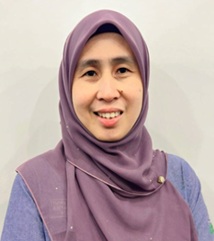Invited Speakers – 2025

Hasan GÖÇMEZ
Professor
Department of Metallurgy and Materials Engineering, Faculty of Engineering
Kutahya Dumlupınar University, TURKEY
Prof. Hasan Gocmez received his BSc degree from the Department of Metallurgical Engineering of Middle East Technical University, Turkey in 1994, and his MSc and Ph.D. degrees in Material and Ceramic Engineering departments from the Rutgers University-New Jersey, the USA in 1997 and 2001, respectively. Japan Society awarded him for Promotion of Science as a JSPS fellow between 2006 and 2007 to do research at Yamaguchi University. He was a visiting scientist at AIST, Stockholm University, Stevens Institute of Technology, and KTH. He is a Professor in the Department of Metallurgical and Materials Engineering at Kutahya Dumlupinar University. His research focuses on ceramic processing, nanomaterials, and energy storage systems such as solar cells and lithium-based batteries. In the meantime, he is an expert on the synthesis, dispersion, and stability of ceramic nanoparticles and the preparation for energy storage applications. He has one patent and more than 100 publications, including articles, conference proceedings, and others, with over 1200 citations reported by Google Scholar (H-index=17).
*
* *
BORIDE BASED MATERIALS FOR SUPERCAPACITOR ELECTRODES
This research focuses on the synthesis of metal borides using a cost-efficient, solution-based approach for application in supercapacitor electrodes. The powders are synthesized from boric acid and metal precursors and are characterized for their structural and morphological features through techniques such as XRD, FE-SEM, EDS, DTA-TG, FTIR, Raman, and EPR. Electrochemical testing is carried out using a Parstat MC multi-channel potentiostat, with the metal borides serving as electrodes in symmetric and asymmetric device setups. In asymmetric configurations, graphite or multilayer carbon nanotube powders are used as the complementary electrode. Electrochemical impedance spectroscopy (EIS) results highlight the superior capacitive performance of the materials, showcasing their promise for energy storage and microdevice applications in modern electronics.

Rozyanty RAHMAN
Assoc. Professor PhD
Universiti Malaysia Perlis
Assoc. Prof. Dr. Rozyanty Rahman is a distinguished researcher, academic leader, and expert in Polymer Composite, specializing in sustainable materials, bio-composites, nanocomposite and polymer science. She obtained her Ph.D. from Universiti Sains Malaysia in 2012, with a focus on UV-cured nanocomposites reinforced with natural fibers. Dr. Rahman has authored numerous publications in high-impact journals, including Materials, Polymer Testing, Composite Structure and Applied Polymer Science. Her groundbreaking research on natural fiber-reinforced composites, bio-based materials, nanocomposite and surface treatments for enhanced material performance has significantly advanced the field of sustainable polymer science. Dr. Rahman is widely recognized for her contributions to both academia and industry, having published over 80 papers in ISI and Scopus-indexed journals. Her work is frequently cited by researchers globally, reflecting her pivotal role in shaping modern composite material technologies. Her research and innovation have earned her numerous awards, including the Gold Award at the IPITEx 2021 for her research on Eco-Friendly Hybrid Railway Sleepers, the Special Award from the Association of Polish Inventors for her work on the Green Kenaf Soundproof Wall Panel 2019, and several prestigious international recognitions. As an Associate Professor at Universiti Malaysia Perlis and a key leader in the Centre for Graduate Studies, she has continued to lead innovative research that bridges the gap between sustainable practices and advanced material science.
*
* *
POLYMER AND BIOCOMPOSITE INNOVATIONS: ADVANCING SUSTAINABLE MATERIALS IN AUTOMOTIVE APPLICATIONS
The automotive industry is undergoing a transformative shift toward sustainability, with innovative materials playing a critical role in this evolution. This research area explores the emerging advancements in the use of polymer materials and biocomposites in automotive applications. Highlighting cutting-edge research and breakthroughs, the integration of these sustainable materials is focused on improving the performance, efficiency, and environmental footprint of vehicles. Polymer-based materials offer a unique combination of lightweight, durability, and versatility, essential for the next generation of automotive design. Meanwhile, biocomposites, made from renewable resources, promise to reduce the carbon footprint and reliance on fossil fuels. The development of high-performance biocomposites not only enhance vehicle safety and functionality but also contribute to the automotive sector’s shift toward greener manufacturing practices. The topics covered will include the latest advancements in material processing, challenges in scalability, and future trends in biocomposite integration. Additionally, real-world case studies exploring the application of these materials in various components—ranging from interior panels to structural elements—will be discussed. The presentation will provide valuable insights into how polymers and biocomposites can drive innovation and sustainable growth in the automotive industry, aligning with global environmental goals while enhancing vehicle performance. Ultimately, this session will provide a deeper understanding of the latest material technologies shaping the future of automotive manufacturing and their potential to reduce the environmental impact of vehicles in a rapidly changing industry.

Cristina-Ileana COVALIU-MIERLA
Professor PhD
National University of Science and Technology POLITEHNICA Bucharest, Romania
Prof.Habil.PhD Cristina-Ileana Covaliu-Mierlă from National University of Science and Technology POLITEHNICA Bucharest is a PhD supervisor in the field of Environmental Engineering and also is: Member of the National Council for the Attestation of University Titles, Diplomas and Certificates (CNATDCU); Director of the Doctoral School of Biotechnical Systems Engineering; ARACIS expert, Engineering Sciences field, Environmental Engineering area of expertise; She has an extensive scientific activity resulted in: 81+ ISI articles, of which 28 as main author holding over 613 citations, 5 books, 5 scientific projects, IH: 11. Expert in environmental studies, climate change and nonconventional depollution technologies.
*
* *
SMART MATERIALS FOR WASTEWATER TREATMENT TECHNOLOGIES
The pollutants removal from wastewater for preventing reaching into the environment is intensively studied [1,2]. The paper presents different types of smart materials having the potential of removal toxic pollutants (heavy metals, drugs, etc.) from wastewater. The smart materials described in this articles were carbon nanotubes, zeolites, magnetic oxides, hybrid nanomaterials, composites nanomaterials. Also, will be outlined the correlation between the materials properties and their performance into the wastewater treatment technologies. The performances of the smart materials were systematically investigated from adsorption kinetics points of view. The wastewater treatment efficiency of pollutant removal was studied in different conditions: different pH (e.g. 4, 6, 8) of the wastewater and dose of adsorbent (e.g. 0.3 and 0.5 g). The results obtained for the smart materials tested demonstrate the possibility application of this adsorbents for the removal of pollutants from wastewater.

Dewi Suriyani Che HALIN
Associate Professor Ts. Dr.
Faculty of Chemical Engineering & Technology, University Malaysia Perlis (UniMAP), Perlis Malaysia.
Dewi Suriyani Binti Che Halin (PhD), currently she is an Associate Professor under the Materials Engineering Department at the Faculty of Chemical Engineering Technology, Universiti Malaysia Perlis and Head for Center of Excellence Geopolymer and Green Technology (CEGeoGTech), Universiti Malaysia Perlis. She was graduated with B.Eng with honours in Mineral Resources Engineering (2004) and Master in Science (M. Sc.) in Materials Engineering (2005) at the Universiti Sains Malaysia. She received her PhD in 2009 from the Universiti Kebangsaan Malaysia in the field of Materials Science specifically in the semiconductor materials. She was appointed as a Metallurgical Engineering Program Chairman (2010-2015). She is currently the member of Tin Solder Technology Research Malaysia under the Tin Industry Board (Research and Development), Malaysia, member of Malaysia Board of Technologist and member of Institute of Materials, Malaysia. She has experience working and lecturing in the surface engineering and electronic packaging materials field for more than 11 years. She was awarded a diploma with the rank of ‘Knight’ by The Committee of the Honarary Order “Pro Scientia et Innovatio” for her outstanding contributions to the promotion of science. She also received several awards from international and national organizations based her research in thin films materials. She has published more than 93 publications including proceedings, journals, books and modules as the main author and co-author with H-index 11. She has appointed as Visiting Research Fellow to take part in the Staff Mobility Programme within the framework of Erasmus Programme at Lodz University of Technology, Poland.
*
* *
MICROSTRUCTURE EVOLUTION OF Ag/TiO2 THIN FILM
Ag/TiO2 thin films were prepared using the sol-gel spin coating method. The microstructural growth behaviors of the prepared Ag/TiO2 thin films were elucidated using real-time synchrotron radiation imaging, its structure was determined using grazing incidence X-ray diffraction (GIXRD), its morphology was imaged using the field emission scanning electron microscopy (FESEM), and its surface topography was examined using the atomic force microscope (AFM) in contact mode. The cubical shape was detected and identified as Ag, while the anatase, TiO2 thin film resembled a porous ring-like structure. It was found that each ring that coalesced and formed channels occurred at a low annealing temperature of 280 °C. The energy dispersive X-ray (EDX) result revealed a small amount of Ag presence in the Ag/TiO2 thin films. From the in-situ synchrotron radiation imaging, it was observed that as the annealing time increased, the growth of Ag/TiO2 also increased in terms of area and the number of junctions. The growth rate of Ag/TiO2 at 600 s was 47.26 µm2/s, and after 1200 s it decreased to 11.50 µm2/s and 11.55 µm2/s at 1800 s. Prolonged annealing will further decrease the growth rate to 5.94 µm2/s, 4.12 µm2/s and 4.86 µm2/s at 2400 s, 3000 s and 3600 s, respectively.